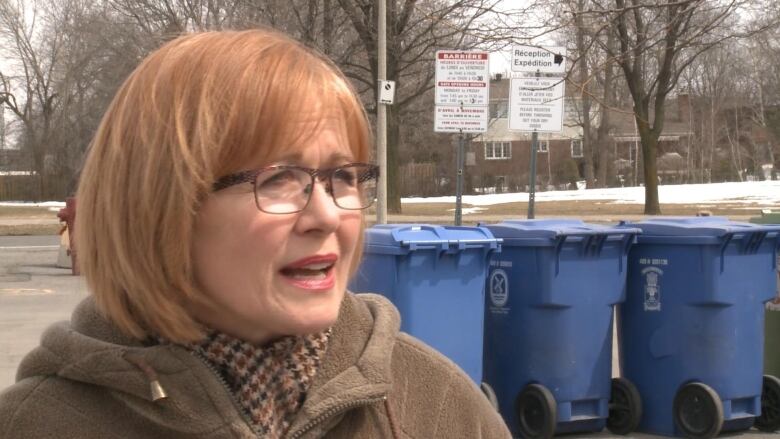Beaconsfield pilot project leads to 30% reduction in garbage
Residents who keep producing lots of garbage may have to pay more tax

Beaconsfield is looking to overhaul the way people get rid of trash.
Residents in the West Island suburb are among the highest producers of landfill wasteon the island of Montreal, but the city hopes to change that by creating incentives for people to do more recycling and composting.
- Special Report | Quebec's recycling industry performing poorly, experts say
- Quiz| What'srecyclablein Montreal?
As part of a two-year pilot project, the city allowed 200 participants to select what size garbage bin they wantedand provided them with compost and recycling bins.
In theory, the size of the garbage bin, and how often it was put on the curb, would affect the participants' tax bills.
The garbage bins were equipped with radio frequency identification tags and the city installed equipment on garbage trucks so it could record each time abinwas picked up.
Residents who tookpart produced30 per cent less landfillwaste than their neighbours.
"A very real significant reduction in waste was produced," saidAndrew Duffield, Beaconsfield'sdirector of public works.
If the system becomes permanent, Duffield said residents who keep producing lots ofgarbage may have to pay more tax.
LeonaKemp, a resident who participated in the trial, said she'sin favour of the idea.
"Ithink it's a wonderful incentive for their citizens," Kemp said.
Beaconsfieldproduces the second most landfill waste per person of any jurisdiction on the island of Montreal, according to citycouncillorKaren Messier.
So while anincentivesystem will giveresidents a chance to avoid a higher tax bill, she said environmental concerns are the main motivation behind the idea.
"We have to do something and we have to do something pretty dramatic, we've all settled into some pretty bad habits," Messier said.
They city hopes to implement the new systemin 2016.












_(720p).jpg)


 OFFICIAL HD MUSIC VIDEO.jpg)
.jpg)



























































































